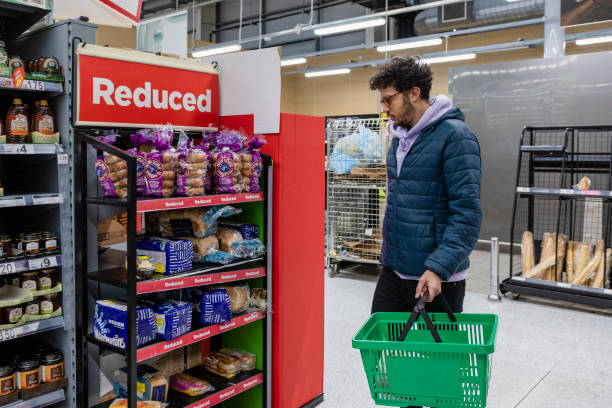Inflation in the U.K. saw a slight ease in March, according to the Office for National Statistics. Despite economists’ expectations of a 3.1% rate, it landed at 3.2%, down from February’s 3.4%. Notably, food prices played a significant role in pulling the headline rate down, while motor fuel costs exerted upward pressure.
The core inflation figure, which excludes energy, food, alcohol, and tobacco, surpassed projections at 4.2%, compared to the anticipated 4.1%. Monitoring services inflation, a crucial metric for U.K. monetary policymakers, revealed a decline from 6.1% to 6%.

Unemployment Rose To 4.2%
This week, market watchers turned their attention to indications of a cooling labor market in the U.K., as unemployment unexpectedly rose to 4.2% between December and February. Additionally, wage growth, excluding bonuses, saw a slight dip from 6.1% in January to 6% in February.

Bank of England Governor Andrew Bailey remarked on Tuesday about the efficacy of higher interest rates in curbing inflation, which has tapered from its peak of 11.1% in October 2022. The central bank foresees inflation briefly dropping to its 2% target in the spring before a slight uptick.
However, with the March core inflation print surpassing 4%, speculation mounts that inflation may be more persistent than previously thought, potentially delaying the timing of the first interest rate cuts.
BOE Is Ready To Reduce The Interest Rate
Market expectations currently indicate that the Bank of England (BOE) may implement two interest rate cuts in 2024 from its current rate of 5.25%, with the first potentially occurring in August or September. However, uncertainty surrounding this timeline has heightened due to ongoing inflationary pressures in the U.S.

Camille de Courcel, head of European rates strategy at BNP Paribas, shared her insights on CNBC’s “Squawk Box Europe” on Wednesday, noting that the latest data suggests the U.K. is “going in the U.S. direction,” which poses a risk to her forecast for a June rate cut by the BOE.
While labor market data surprised on the downside, the Office for National Statistics (ONS) has cautioned that month-on-month figures may be distorted by methodological issues. As a result, de Courcel emphasized that the BOE’s Monetary Policy Committee will pay close attention to any unexpected increases in wage growth and services.
Following the announcement, the British pound strengthened against both the U.S. dollar and the euro. It traded up 0.1% against the greenback at $1.243 and 0.15% stronger against the euro at 1.1718.
U.K. Finance Minister Jeremy Hunt, preparing for a national election this year, expressed his thoughts on social media platform X, stating that the inflation data was “welcome news.”
